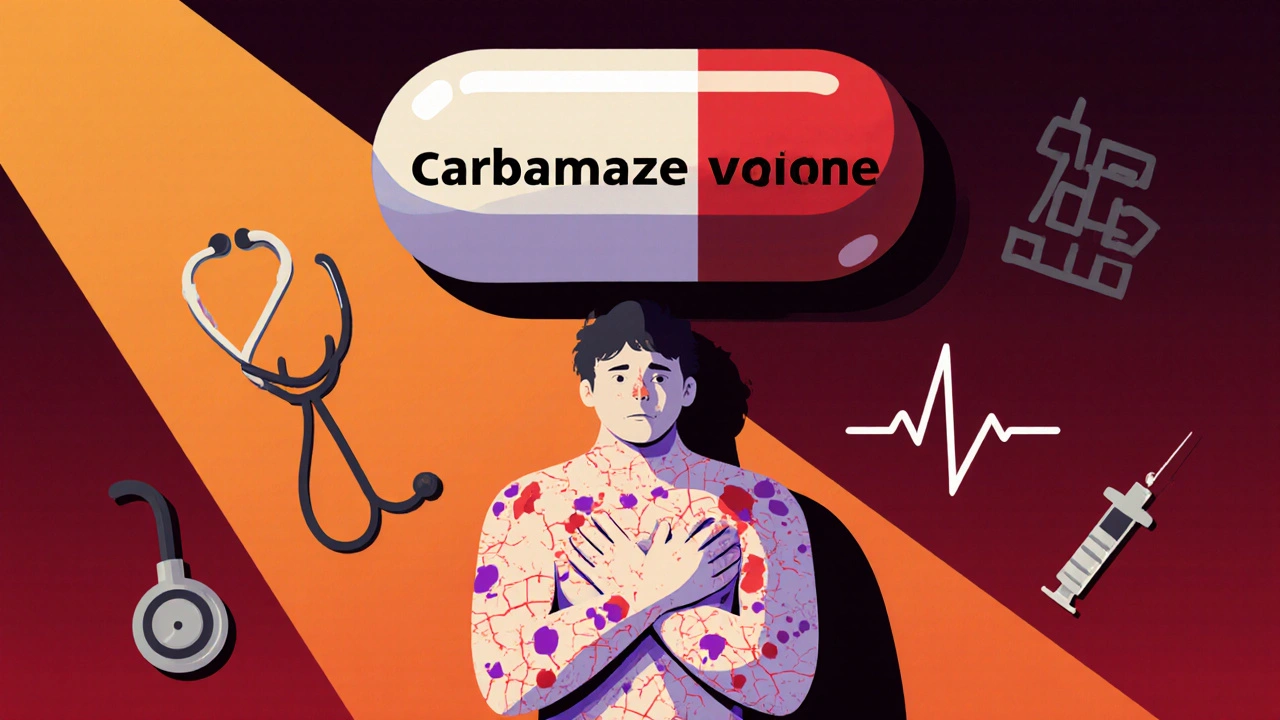Drug Reaction: Signs, Types, and What to Do When Your Body Reacts
When your body reacts badly to a medication, it’s not always obvious—especially if the symptoms don’t show up until days or weeks later. This is what we call a drug reaction, an unintended and harmful response to a medication taken at normal doses. Also known as adverse drug reaction, it’s not just about nausea or dizziness. Some reactions can be mild, like a rash, but others, like DRESS syndrome, a severe, systemic reaction involving skin, organs, and fever, can be life-threatening if ignored.
Drug reactions fall into two big buckets: predictable and unpredictable. Predictable ones, like stomach upset from NSAIDs, happen to many people and are tied to how the drug works. Unpredictable ones, like Stevens-Johnson Syndrome, a rare but dangerous skin and mucous membrane reaction often triggered by antibiotics or seizure meds, are tied to your unique biology—your genes, immune system, or even past exposures. These are the ones doctors struggle to predict, which is why your feedback matters. Patient-reported symptoms are now a key part of drug safety tracking. If you notice a new rash, swollen face, blistering mouth, or unexplained fever after starting a new pill, don’t wait. Write it down. Call your doctor. These aren’t "just side effects"—they’re signals your body is in distress.
Some drugs are more likely to cause these reactions than others. Antibiotics like sulfonamides, anticonvulsants like carbamazepine, and even common painkillers like allopurinol have been linked to severe delayed reactions. And it’s not just the drug itself—how you take it matters. Taking meds with food or on an empty stomach can change how your body processes them. Some people develop reactions only after long-term use, which is why regular checkups for drugs like entecavir or mycophenolate are non-negotiable. Even something as simple as sunlight can trigger a reaction if you’re on a photosensitive drug. The connection between your skin, your meds, and your immune system is more complex than most realize.
You’re not alone in this. Millions of people experience some form of drug reaction every year, and many don’t know what to look for. That’s why we’ve gathered real, practical posts from people who’ve been there—what they noticed, how they figured it out, and what they wish they’d known sooner. Whether you’re worried about a rash that won’t go away, a fever after starting a new antibiotic, or just want to understand how your body responds to meds, the articles below give you clear, no-fluff guidance. No jargon. No guesswork. Just what you need to protect your health.
Stevens-Johnson Syndrome and Toxic Epidermal Necrolysis are rare but deadly drug reactions that cause skin and mucous membrane damage. Learn the warning signs, top triggers, and why genetic testing could save your life.

